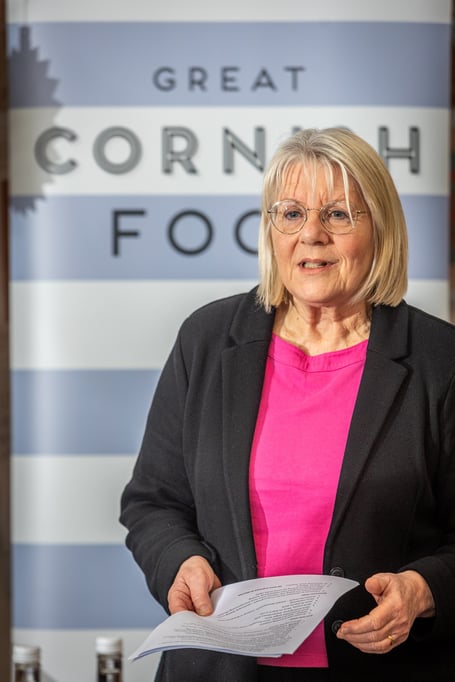A BOLD new strategy has been launched for Cornwall to become the UK's number one region for sustainable food and drink.
The Cornwall & Isles of Scilly Agrifood Strategy and Action Plan is a new 10-year strategy designed to position the region as the UK’s leading green, clean and fair food economy.
It highlights how the food industry can be a powerful force for positive change, helping to deliver net zero, protect and regenerate the environment, improve mental and physical health and wellbeing, and enhance food security.
The plan aims to deliver lasting economic, environmental and social benefits while tackling major challenges such as climate change, skills shortages, and shifting global food demands by harnessing the region’s unique natural assets, world-class produce, and innovative businesses.
The strategy has been developed by industry body Cornwall Food and Drink in collaboration with key stakeholders and is the first blueprint for the industry in Cornwall and Scilly for more than 20 years.
Its timely publication coincides with the government's emerging UK Food Strategy and promised 25-year roadmap for farming.
The Cornish agrifood sector, defined as food, drink, farming and fishing, is proportionately a much greater part of the economy than the UK as a whole.
It generates over 10 per cent of total GVA, which is more than twice the national average; accounts for one in five jobs and a quarter of all businesses.
Some 80 per cent of land in Cornwall and Scilly is in agricultural use.
But it also faces considerable pressures with subsidy reform, rising costs and the move to net zero, compounded by skills shortages and perceptions around a lack of opportunities for worthwhile careers.
Strategy author and Cornwall Food and Drink founder Ruth Huxley said: "Cornwall has long been known for its outstanding food and drink, and this strategy provides a clear plan to build on our strengths while addressing key challenges such as sustainability, skills shortages, and supply chain resilience.
“By working together as an industry and with government and other stakeholders, we can unlock enormous opportunities and ensure our food and drink sector continues to thrive and set an example for the rest of the UK."
A key part of the plan is fostering more collaboration with other sectors in Cornwall and Scilly including tourism, health and education, and working with emerging sectors such as renewable energy and space to harness benefits for agrifood industries.
Geothermal energy for example is already being used by the Eden Project for its biomes and greenhouses, while satellite data is being used to support precision farming, measure grass height from space and track livestock.
There are also opportunities to increase efficiency and reduce waste by embracing new technologies including automation, robotics and AI, and developing non-food products and services such as plant-based packaging, textiles and pharmaceuticals.
The strategy is one of several outcomes from a year-long project run by Cornwall Food and Drink focused on sector development.
Called the Great Cornish Food project, it has been funded with almost £555,000 from the UK Shared Prosperity Fund.





Comments
This article has no comments yet. Be the first to leave a comment.